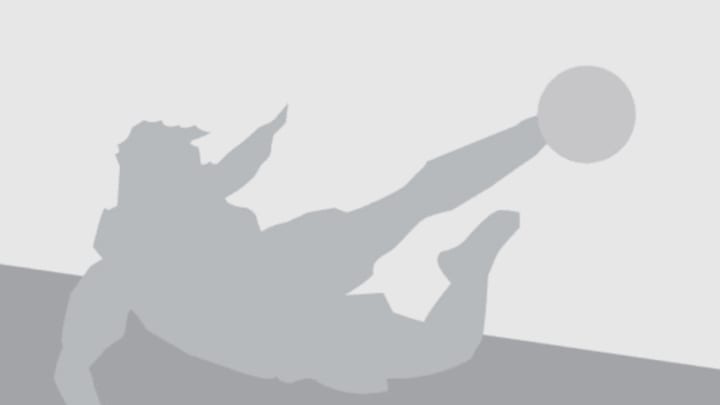Rivelino: The Moustached Maestro Who Forged the Path For Modern Flair

For some of the younger generation, it's very easy to get swept up in the aura of sides who've dominated football in the modern era - that's totally forgivable. After all, you can only judge based on what you've seen with your own eyes.
Yet, even for the wee nippers who adore the sport and wax lyrical about the current crop, everybody knows about Brazil's 1970 World Cup winning side. Everyone.
Criminally overlooked in that squad was a man who boasted a skill set like none other. These days, Neymar is often being credited with the finest 'tekkers' in the land, but one can argue we would see fewer of his kind if it weren't for one man: Rivelino.
Scintillating technique is something that comes naturally to certain players. It's inherent within their existence, and prevalent within their overall manner and style. Every time they take to the turf, winning is at the forefront of their psyche, but lurking in the background is a desire to dazzle, deceive and, most of all, entertain.
Over the years, South America has presented the sport with countless players that fit this mould. Even one of the greatest centre-forwards to have played the game in Ronaldo Luís Nazário de Lima had tricks aplenty in his locker. Rivelino, though, was the most skilled Brazilian to lead his nation to World Cup glory.
Garrincha before him was one of the finest dribblers ever to grace the game, but nobody could do what Rivelino could. Pele was one of football's greatest ever, but even he could only dream of his former teammate's skill level.
Rivelino had been overlooked by previous manager João Saldanha in the national fold, which was a rather remarkable decision to make considering how formidable he was for his club side, Corinthians. Leading up to the 1970 World Cup he was more often than not consigned to the bench, this despite making his international debut for Brazil in 1965, aged just 19.
Deployed primarily as an attacking midfielder, his prominence in his native country and importance to Corinthians failed to produce any major honours. The only trophy that he scooped during his time with the Timão was the Torneio Rio – São Paulo in 1966.
But club football was not the stage from which Rivelino would captivate the world. As suggested, he needed the World Cup to do so.
Under Mario Zagallo, the Brazil side of 1970 wrote the blueprint for dynamic, flowing football.
Rivelino was at the heart of it.
Onlookers were wooed with his skill, dexterity and a remarkably self-expressive approach to playing. Showboating was encouraged under Zagallo, and it presented Rivelino with the platform from which to ply his trade with unwavering precision and panache.
His sheer technical mastery and immense ball control were paramount to Brazil's success - but those weren't the only colours on his palette, oh no. Rivelino had fire in his boots. Particularly, his left peg.
For those who haven't seen it, his free kick against Czechoslovakia in Brazil's opening World Cup clash demonstrates this perfectly. If the goalkeeper had got his hand fully behind that strike, you'd have feared for his career after that. Unless, of course, he wanted to take up a role as Captain Hook in a pantomime following his football days. Which, I'm assuming, he didn't.
Dazzling throughout their group stage, Rivelino's class was exemplary. The quarter final and semi final stages were not to be Brazil's undoing either, as Rivelino's blindingly obvious talent continued to shine.
You needn't look any further than the famed Elastico skill to gather an understanding of his influence. We love to see it, and even Marcus Rashford is nailing down the technique pretty comprehensively. Who, you ask, is credited with conjuring up that magic?
Rivelino, of course. Well, he didn't invent it as such - that honour lands with Sergio Echigo - but he perfected it.
It came as no surprise that Brazil would go on to claim the World Cup that year. Rivelino's sumptuous first time cross for that header setting the tone in a final that was ultimately never a contest.
The 1970 World Cup was not to be Rivelino's swansong, though.
Sure, Brazil would be unable to replicate their win four years on - ultimately finishing fourth in the following two competitions - but Rivelino's impact on modern football can never be understated. For his pioneering use of the Elastico alone he deserves recognition in the modern game. Yet the truth is, the manner with which he could manipulate a football and conjure magic all on his own means modern football ought to champion his work far more than it does.
His unmatchable style was quintessentially 'Brazilian'. Or, in other words, the Brazil side of 1968-1978 was unmistakably 'Rivelino' in style..
While he may not have his name mentioned enough, modern flair players must direct plenty of praise Rivelino's way for the style they've adopted.
That said, if they are the flair players of this era, they'll already know how integral Rivelino was in embedding a different way of playing. He truly was one of the greatest ever.
90min's 'Top 50 Greatest Footballers of All Time' can be found here.
Number 50: Luka Modric
Number 49: John Charles
Number 48: Hugo Sanchez
Number 47: Jairzinho
Number 46: Omar Sivori
Number 45: Paolo Rossi
Number 44: Paul Breitner
Number 43: George Weah
Number 42: Kaka
Number 41: Lev Yashin
Number 40: Gunnar Nordahl
Number 39: Kevin Keegan
Number 38: Hristo Stoichkov
Number 37: Gianluigi Buffon
Number 36: Johan Neeskens
Number 35: Xavi Hernandez
Number 34: Luis Suarez
Number 33: Karl-Heinz Rummenigge
Number 32: Andres Iniesta